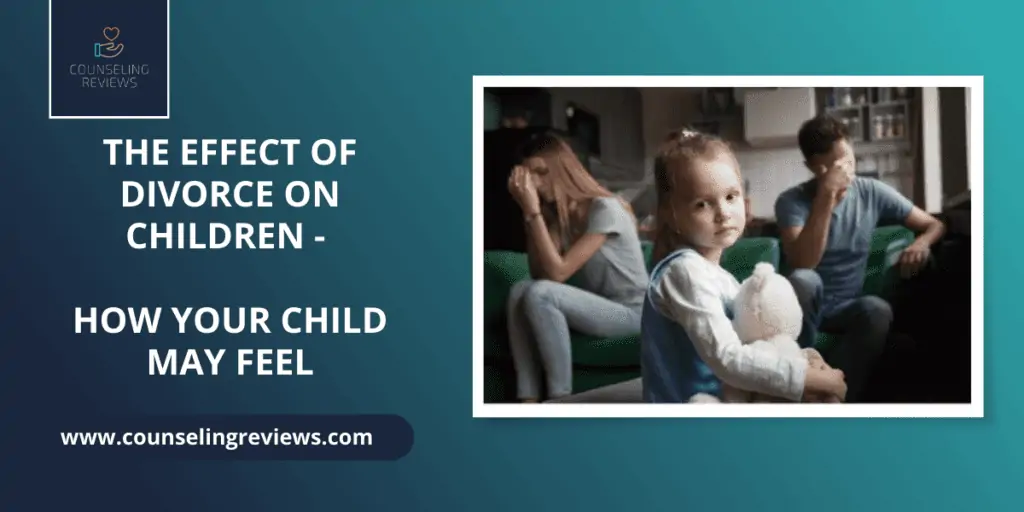In the US, 50% of marriages end in divorce. Depending on the relationship between the spouses, the divorce can end either amicably or can be drawn out and traumatic.
This trauma can live on and affect the children of the marriage for many years. This does not mean that unhappy spouses should stay married. It does mean that they need to handle the divorce in a way that has minimal long-term consequences for many children.
It is also important for you to know how to deal with your mother

What Are the Difficulties a Couple Faces When Deciding to Divorce, What Are the Effects on the Children?
Deciding to divorce is a big decision. Parents often wonder if there is a perfect time to make a move.
Some difficulties divorced or separated parents may face are:
- Short term effects on children
- Long term effects on children
- The reaction of extended families
- Financial Implications
Typically, children under five years of age are more resilient, going through a divorce than a 16-year-old. Teenagers grow accustomed to their former family structure and dynamic, making it challenging to transition from mom and dad living together to now co parent living in a single parent household.
A 5-year-old is still getting used to their world so they can make the adjustment with less difficulty. Interestingly, adult children of divorce are also affected. They tend to be caught in the middle, which can lead to high levels of stress and anxiety.
You can also seek divorce counseling to save your marriage
No matter the child’s age, there are many lasting effects of divorce on the most children’s lives.
Some of the effects include:
- Mental health issues
- Behavioral problems
- Substance abuses
- Relief and improved happiness (it’s not all bad! Sometimes separation is better for everyone)
Parents may also be concerned about any prejudices against their younger children, because of the divorce. Today, families come in different shapes, sizes, and colors. There are many different types of families. It is normal for a family to be anything but usual.
Statistics of the Effect of Divorce on Children
One of the most noticeable effects on children is how they navigate their future relationships. These are a few statistics that may help you better understand the effects your divorce may have.
- Children of divorce are 60% more likely to end their own marriage in divorce
- If the child’s parents remarry, their own marriages are 91% more likely to end in divorce
Children of divorce are 50% more likely to marry other children of divorce.
Tips on How to Approach Your Child to Start a Dialogue
After you and your spouse have decided to divorce, you must have that conversation with your kids. Before having the talk, considering having a plan in place for how to tell them.
Here are a few useful parenting tips for a successful conversation:
- Sit down with your kids together
- Tell the whole family together then talk to each child separately
- Be open to questions
- Do not blame each other (no matter how angry you maybe)
- Keep it simple, they don’t need all the messy details.
How Can Online Therapy Help?
Parents who seek the help of a mental health professional can actually benefit from it. It can make a massive difference for divorcing or divorced families.
Traditional counseling can be cost-prohibitive, especially considering how much a divorce cost. Online counseling for families is a more cost-effective method. Additionally, it is easier to schedule and participate in sessions since they can be done from home.
Counseling can be an intimidating prospect for children. Completing sessions online can be an excellent way to help them feel comfortable.
Kids spend a lot of time online. They may be more at ease online than in person.
Ways to Prevent Long Term Psychological Effects of Divorce on Children
To prevent long-term psychological effects of divorce on children, parents can take several steps.
First, maintaining open and honest communication with their children throughout the divorce process, is crucial. Providing reassurance, explaining the reasons for the parent’s divorce, in an age-appropriate manner, and listening to their concerns can help alleviate anxiety.
Second, prioritizing co-parenting and creating a stable and consistent environment for the child can promote a sense of security.
Additionally, seeking professional support, such as family counseling or therapy, can provide children with the tools to cope with the changes and process their emotions effectively.
Finally, fostering a positive relationship between the child and both parents, even after the divorce, is essential for their well-being.
How Does Divorce Affect Children of Different Ages?
Infants and Toddlers (0-3 years): Although very young children may not fully comprehend the concept of divorce, they can still sense changes in family dynamics and their environment. They may experience disruptions in their routines and attachments, which can lead to increased clinginess, irritability, or regression in their development milestones.
Preschoolers (3-5 years): Preschool-aged children may have a limited understanding of divorce, but they can still feel the emotional tension between their biological parents. They may exhibit separation anxiety, become more demanding, or display behavioral changes like aggression or tantrums. They might also blame themselves for the divorce.
School-Aged Children (6-11 years): Children in this age group are more aware of the divorce and its implications. They might experience a range of emotions, including sadness, anger, or confusion. School performance may be affected, and they may struggle with issues related to loyalty, feeling caught in the middle of family conflict, or having divided loyalties towards their parents.
Adolescents (12+ years): Adolescents may have a deeper understanding of parental separation or divorce, but they can still be significantly impacted by it. They may experience intense emotions, such as anger, resentment, or feelings of rejection. They might struggle with their identity, experience relationship difficulties, and show changes in basic academic performance or engagement in risky behaviors.
Impacts of Divorce on a Child
Divorce can have significant emotional impact on a child’s life, shaping their emotions, behavior, and overall well-being.
One of the key areas affected is the child’s emotional and mental health conditions. Divorce often brings feelings of confusion, sadness, and anxiety, as children grapple with the loss of a unified family.
They may experience a range of emotions, such as anger, guilt, or even a sense of abandonment. These emotional struggles can lead to behavioral problems, including acting out or withdrawing from social activities.
Moreover, divorce can increase the risk of mental health problems and issues, such as depression and anxiety, in children. It is crucial for many parents to provide emotional support and seek professional help if needed to help their child navigate these challenges successfully.
Resources
Sometimes it is best to look to outside resources for help when navigating a significant life change. Since divorce is quite common, there are many established resources to provide you with guidance. The following resources may be of use for families going through divorce or separation.
- Online counseling for kids and teenagers
- Books about divorce
- Talk to other divorced families
- Join a support group
- Visit websites about parenting and divorce
Conclusion
When children have experienced divorce from other parent, the world as they know it turns upside down. While it may be a struggle and difficult at first, the effects of a parents separation and divorce do not have to be long-lasting. Make it a successful transition, show your children love and support, and enlist professional help when needed.
Children Divorce Effects FAQs
Divorce can indeed be traumatic for a child. The separation of parents can create emotional distress and disrupt a child’s sense of stability and security within the family unit, potentially impacting their well-being and future relationships with entire family.
Being separated from one’s child can have significant psychological effects on one parent, including intense grief, anxiety, depression, and a sense of loss. It can also lead to feelings of guilt, helplessness, and increased stress. Long-term separation may impact parent-child bonding, self esteem, attachment, and overall emotional well-being for both the parent and child involved.
The age at which divorce affects a child the most can vary based on individual circumstances, but generally, researchers suggest that children between the ages of 6 and 12 tend to be more vulnerable to the emotional and psychological impact of divorce than young adults. However, every child’s experience is unique, and the effects can differ.





